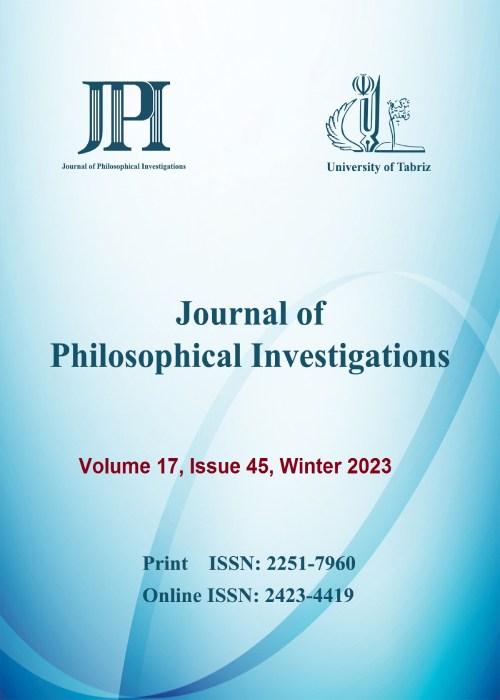Phenomenology of Ideology and Its Relationship with Utopia based on Ricoeur's Views
Author(s):
Article Type:
Research/Original Article (دارای رتبه معتبر)
Abstract:
This article aims at disambiguation or better say, decontradiction of the concept of ideology by referring to Ricoeur's opinions about ideology. Ricoeur calls his method of studying ideology phenomenological. Why phenomenology? Because the term ideology, when placed in a polemical framework, will suffer from both "bad use" and "abuse". Only with a serious semantic approach and a correct explanation of the conditions that this concept depends on, can we put an end to this abuse. Such a task is possible in the light of an approach that Ricoeur calls "developmental phenomenology", "a rising analysis of the concept" and "an attempt to explore the subsurface of the obvious meaning of ideology to reach its fundamental meanings". The attempt is to disambiguate this concept, which is at first glance polemical and controversial, so that a clearer and fairer definition of it would be presented. Based on Paul Ricoeur's work titled Lectures on Ideology and Utopia, which was delivered at the University of Chicago in 1975, and his other articles and works on ideology and phenomenology, this article has tried to answer the two main questions of this field together with Ricoeur: a) Who were the main theorists of the concept of ideology? b) How many major definitions can be extracted from the phenomenological study of ideology? The extract of the intertwined answer to the two mentioned questions is that Ricoeur, while examining the works of people such as Marx, Althusser, Mannheim, Weber, Habermas and Geertz, questions the common and negative perceptions of ideology, and based on a detailed and deep examination of the works of the mentioned thinkers, comes to three major and specific definitions, or in other words, three stages or functions of ideology; the first one based on Marx's definition, the second one based on Weber's attitude and the last one based on Geertz's views about this term. Ricoeur calls these three definitions, stages or functions respectively, ideology as "ambiguity of reality", ideology as source of "power legitimacy", and finally ideology as source of "social cohesion". Based on such an analysis of ideology, in the second part of the article, the different functions of utopia have been discussed, and while emphasizing the positive aspects of utopia, it has been concluded in conformity with Ricoeur that a society without utopia is a dead society.
Keywords:
Language:
Persian
Published:
Philosophical Investigations, Volume:16 Issue: 40, 2022
Pages:
336 to 359
magiran.com/p2517981
دانلود و مطالعه متن این مقاله با یکی از روشهای زیر امکان پذیر است:
اشتراک شخصی
با عضویت و پرداخت آنلاین حق اشتراک یکساله به مبلغ 1,390,000ريال میتوانید 70 عنوان مطلب دانلود کنید!
اشتراک سازمانی
به کتابخانه دانشگاه یا محل کار خود پیشنهاد کنید تا اشتراک سازمانی این پایگاه را برای دسترسی نامحدود همه کاربران به متن مطالب تهیه نمایند!
توجه!
- حق عضویت دریافتی صرف حمایت از نشریات عضو و نگهداری، تکمیل و توسعه مگیران میشود.
- پرداخت حق اشتراک و دانلود مقالات اجازه بازنشر آن در سایر رسانههای چاپی و دیجیتال را به کاربر نمیدهد.
In order to view content subscription is required
Personal subscription
Subscribe magiran.com for 70 € euros via PayPal and download 70 articles during a year.
Organization subscription
Please contact us to subscribe your university or library for unlimited access!



